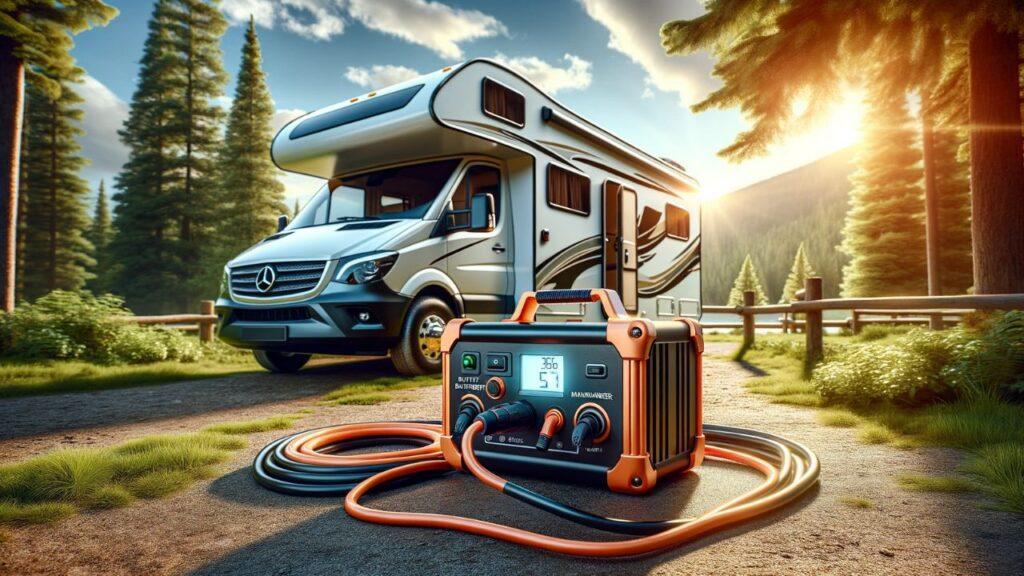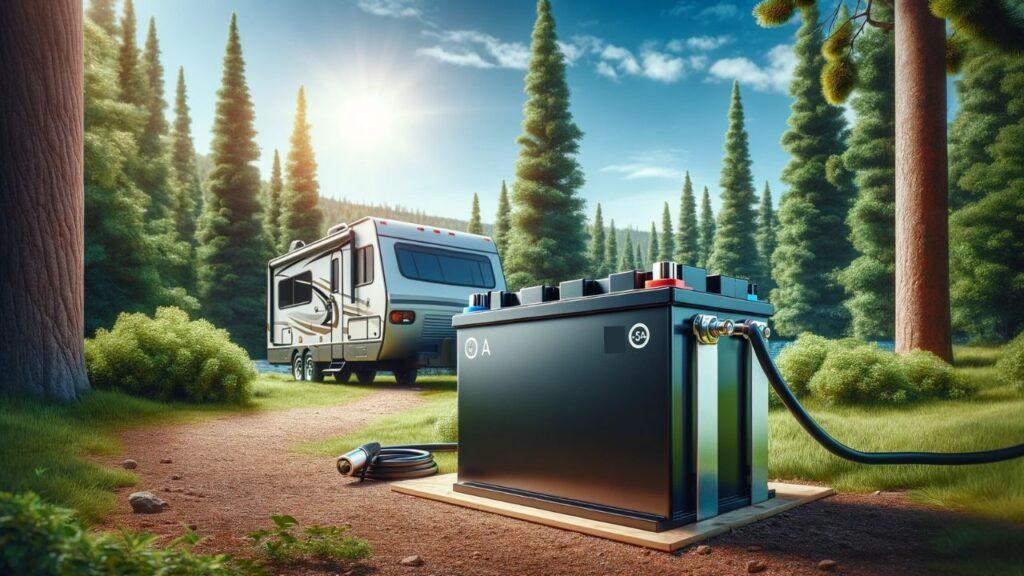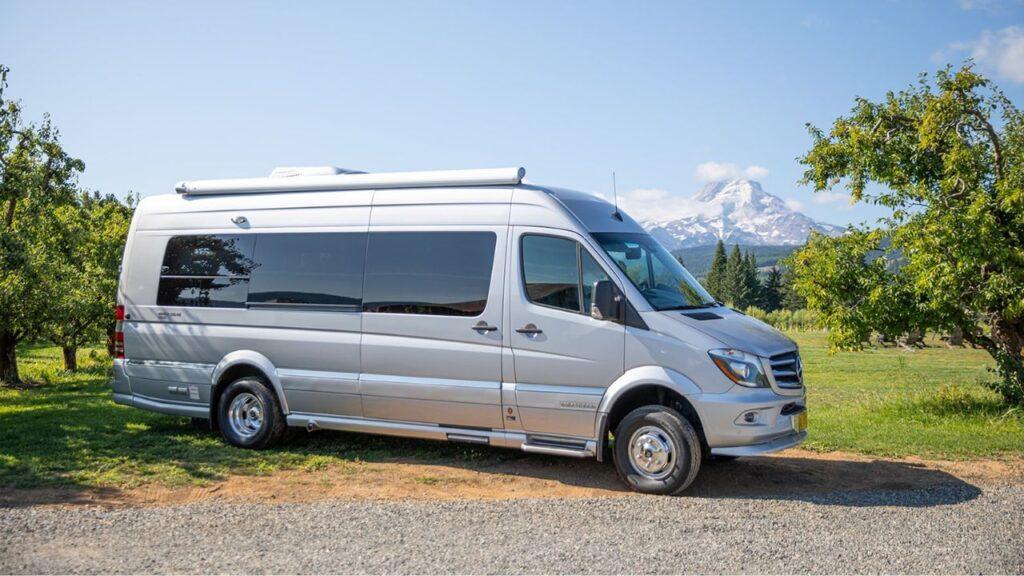
The allure of living on the road in a Recreational Vehicle (RV) has captivated many, combining the freedom of travel with the comforts of home. However, the environmental footprint of traditional RV living can be substantial. How to Live Sustainably in an RV introduces a green alternative, highlighting how to embrace the RV lifestyle responsibly. This guide delves into the practicalities of sustainable living in your camper, underscoring the growing trend towards eco-friendly practices among today’s RV enthusiasts.
Understanding RV Sustainability
Sustainable living within the cozy confines of an RV involves more than just enjoying the scenery—it’s about minimizing your environmental impact while maximizing efficiency and self-sufficiency.
What Does Sustainability Mean in the Context of RV Living?
In the realm of RVs and motorhomes, sustainability refers to practices that reduce your ecological footprint. This includes everything from energy consumption and water use to waste management. Live sustainably in an RV means adopting lifestyles and modifications that contribute to a healthier planet.
Why Sustainable RV Living is Crucial
The traditional RV lifestyle can be hard on the environment, often involving high fuel consumption and inefficient energy use. By adopting more sustainable practices, RVers can significantly lessen their impact on the natural landscapes they love to explore. Benefits of this transition include reduced carbon emissions, minimized waste, and a greater reliance on renewable resources.
How to Assess Your RV’s Environmental Impact
To truly live sustainably in an RV, it’s crucial to understand your current impact. Start by evaluating your RV’s energy and water usage, and your waste production. Tools like RV solar generators and RV water pressure regulators can provide insights into how much you consume and help in making necessary adjustments.
Energy Efficiency in RVs
Choosing to live sustainably in an RV means prioritizing energy efficiency, which not only helps the planet but also reduces living costs.
Choosing the Right RV for Energy Efficiency
Not all RVs are created equal when it comes to energy efficiency. Class A, B, and C motorhomes vary greatly in their power and fuel needs. Smaller models, like camper vans, often have better fuel economy and require less power to heat and cool, making them a greener choice for the eco-conscious traveler.
Solar Power Solutions for RVs
One of the most effective ways to reduce reliance on non-renewable power sources is through solar energy. Installing RV solar panel kits transforms your RV into a mobile power station capable of harnessing the sun’s energy. This not only powers your daily needs but also reduces generator use, lessening both noise and emissions. The advantages of using RV flexible solar panels extend beyond environmental; they also offer freedom to explore off-grid locations.
Transitioning towards sustainable RV living isn’t just a personal choice; it’s a necessary shift for those passionate about preserving the natural beauty they travel to see. This guide has outlined foundational strategies to help reduce your environmental impact and embrace a more sustainable lifestyle on the road. From choosing an energy-efficient RV to implementing solar power solutions, the road to live sustainably in an RV is both rewarding and essential for the conscientious traveler.
Water Conservation Strategies in RVs
Living sustainably in an RV means balancing comfort with environmental consciousness, particularly concerning water usage. Water conservation is essential in reducing our impact on natural resources while RVing, helping ensure future travel remains enjoyable.
How to Reduce Water Usage in Your RV
Daily habits can greatly affect water conservation. Begin with shorter showers, which can save gallons per trip. Consider installing water-saving fixtures such as low-flow showerheads and aerators on your RV kitchen faucets, reducing water flow without compromising comfort. Furthermore, RV-specific products like RV tankless water heaters limit water waste by providing on-demand hot water, avoiding energy loss associated with heating and storing excess water. Additionally, opting for RV drinking water hoses with integrated filters can also contribute to healthier, cleaner water consumption.
The Benefits of Using Eco-Friendly Products
Eco-friendly products play a significant role in water conservation. Biodegradable shampoos, soaps, and cleaners reduce chemical runoff into local water systems when used for washing dishes, clothes, and bodies. This helps preserve aquatic ecosystems and water quality. Opting for reusable alternatives like RV composting toilets and biodegradable trash bags not only lowers your environmental footprint but also cuts down on water usage by minimizing the need for frequent cleaning of your RV’s interior.
By integrating sustainable water conservation practices into RV living, we can protect natural resources while traveling comfortably. Combining practical tips, water-saving fixtures, and eco-friendly products helps RVers reduce their impact on local environments, ensuring a greener, more sustainable future for RV enthusiasts.
Waste Management in Your Camper Van
Effective waste management is essential for living sustainably in an RV. It minimizes our impact on the environment, preserves natural beauty, and ensures a healthier lifestyle for ourselves and future travelers.
Proper Waste Disposal Techniques
Handling waste responsibly while on the road requires preparation. Carry reusable bags to separate recyclables from general trash, and locate recycling centers near campgrounds or stops for proper disposal. RV composting toilets provide an efficient way to manage human waste, breaking it down naturally and reducing water usage. This contributes to a cleaner, more sustainable RV experience.
Minimizing Plastic Use and Waste in RVs
Single-use plastics are a significant source of waste, but alternatives exist. Replace disposable items with reusable options like stainless steel water bottles, cloth shopping bags, and silicone food storage containers. These practical and sustainable solutions cut down on waste generation, making RV travel more eco-friendly and enjoyable.
Incorporating effective waste management strategies into your RV lifestyle significantly reduces environmental impact. This approach ensures future generations can enjoy traveling and experiencing the same natural beauty. Let’s make sustainable practices a priority in our RV travels, preserving the planet for all.
Sustainable Practices for Everyday RV Living
Sustainable RV living extends beyond resource management; it encompasses daily habits and choices that shape our overall impact. Here’s how to integrate eco-friendly practices into everyday RV life.
Sustainable Eating and Cooking in an RV
Eating sustainably on the road starts with sourcing local and organic food. Visit farmers’ markets along your route to reduce your carbon footprint and support local economies. These markets often offer organic produce and other goods that are free from harmful chemicals, contributing to a healthier lifestyle.
Cooking in an RV also requires mindful appliance choices. Opt for energy-efficient kitchen appliances like electric stoves, RV microwaves, or portable solar-powered cookers. These reduce energy consumption, aligning with the goal of sustainable living. Additionally, plan meals in advance to minimize food waste and make the most of your onboard fridge or pantry space.
Eco-Friendly RV Maintenance
Maintaining your RV with eco-friendly products is crucial for sustainability. Choose biodegradable cleaning products, like plant-based detergents and natural surface cleaners, which prevent harmful chemicals from entering local ecosystems. RV-friendly black tank treatments also minimize harmful runoff when emptying waste.
Regular maintenance is also vital for reducing fuel consumption and emissions. Check tire pressure and inflate as needed, as well-inflated tires contribute to better gas mileage. Schedule regular engine tune-ups to ensure efficient performance, minimizing your RV’s carbon footprint on the road.
By adopting sustainable eating, cooking, and maintenance practices, RVers can significantly reduce their environmental impact. Supporting local producers, using energy-efficient appliances, and choosing eco-friendly products for maintenance promote a healthier planet and lifestyle. Sustainable practices for everyday RV living foster a positive relationship between travel and the environment.
Common Obstacles and How to Overcome Them
Living sustainably in an RV presents unique challenges. Here’s how to navigate common obstacles faced by eco-conscious travelers.
Finding Sustainable Resources on the Road
It can be challenging to find eco-friendly resources while traveling. Research is key. Before heading out, look up local farmers’ markets, natural food stores, and sustainable retailers along your route. Apps and websites dedicated to green living can assist with locating organic produce, eco-friendly products, and recycling centers. For energy solutions, invest in RV solar panel kits and RV converters to minimize reliance on external power sources.
Overcoming Common Issues
Staying sustainable on the road requires preparation. For energy concerns, consider installing RV solar generators or RV power inverters for off-grid power solutions. For waste management, stock reusable containers and biodegradable trash bags, minimizing environmental impact. Regular RV maintenance, including tune-ups and tire checks, ensures fuel efficiency and reduces emissions.
Navigating the challenges of sustainable RV living requires preparation and creativity. By researching resources, utilizing eco-friendly products, and maintaining your RV efficiently, you can overcome obstacles and live a sustainable lifestyle on the road. This approach not only benefits the environment but also enhances your RV experience, ensuring responsible and enjoyable travels.
Wrapping It Up!
Living sustainably in an RV marries the joy of travel with a mindful approach to resource management. This guide has explored key strategies to seamlessly integrate sustainability into everyday RV life, touching on water conservation, waste management, energy efficiency, and sustainable eating and cooking practices. Conserving water is crucial to live sustainably in an RV. Installing water-saving fixtures, such as low-flow showerheads and aerators, can help conserve resources without sacrificing comfort. Additionally, adopting eco-friendly products like biodegradable soaps and cleaners protects local ecosystems while reducing your overall impact.
Effective waste management is another cornerstone of sustainable RV living. Separating recyclables from general trash, opting for reusable containers and bags, and considering composting toilets can drastically minimize your environmental footprint. This approach helps preserve the natural beauty of the landscapes we explore. Energy efficiency is also fundamental. Choosing an energy-efficient RV, such as a camper van or Class B motorhome, and incorporating solar power solutions like solar panels and RV converters reduce reliance on traditional power sources. Regular maintenance, including tire pressure checks and engine tune-ups, also improves fuel efficiency, lowering both emissions and costs.
Sustainable daily practices, such as sourcing local and organic food and using energy-efficient cooking appliances, further contribute to sustainable RV living. Visiting farmers’ markets and supporting local producers promotes eco-friendly living while providing fresh, nutritious meals. Cooking with energy-efficient appliances, like electric stoves or RV microwaves, reduces energy consumption and food waste.
In conclusion, sustainable RV living involves adopting responsible habits and making informed decisions across all aspects of daily life. By integrating these practices, we can reduce our ecological footprint and enjoy responsible travel. This approach not only ensures enjoyable travels today but also fosters a healthier planet for future RV enthusiasts, promoting a greener, more sustainable RV community.
Related FAQs
How do I manage waste while RVing sustainably?
Separate recyclables from general trash, compost where possible, and avoid single-use plastics.
What are some eco-friendly RV maintenance tips?
Use biodegradable cleaning products and perform regular tune-ups for better fuel efficiency.
How do I conserve water in an RV?
Install water-saving fixtures, take shorter showers, and use biodegradable products.
What types of energy solutions can I use for my RV?
Consider solar panels, RV converters, and solar generators for off-grid power.
How can I find sustainable resources while traveling?
Research local farmers’ markets, natural food stores, and eco-friendly retailers along your
As outdoor enthusiasts ourselves, we understand the significance of reliable gear that can withstand the elements and support you throughout your journey. We try to provide as much real life information with our guides and how tos to the readers as possible. Our honest and transparent reviews of essential outdoor gadgets and products are rooted in testing and experience. We take great satisfaction in offering unbiased evaluations, ensuring that you can make informed decisions when investing in outdoor gear. As an affiliate website, we may earn a small commission from some of the products we feature. However, rest assured that our opinions are not influenced by this, and your trust is always our top priority.



